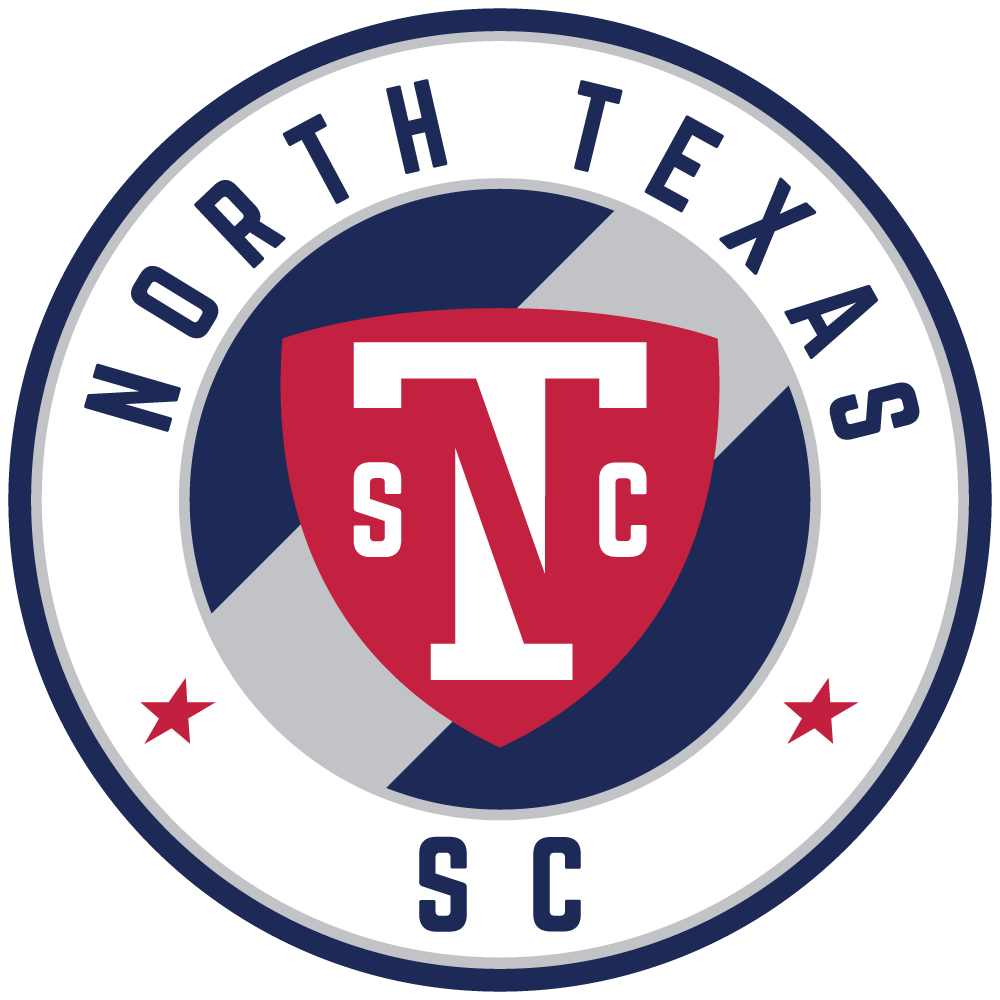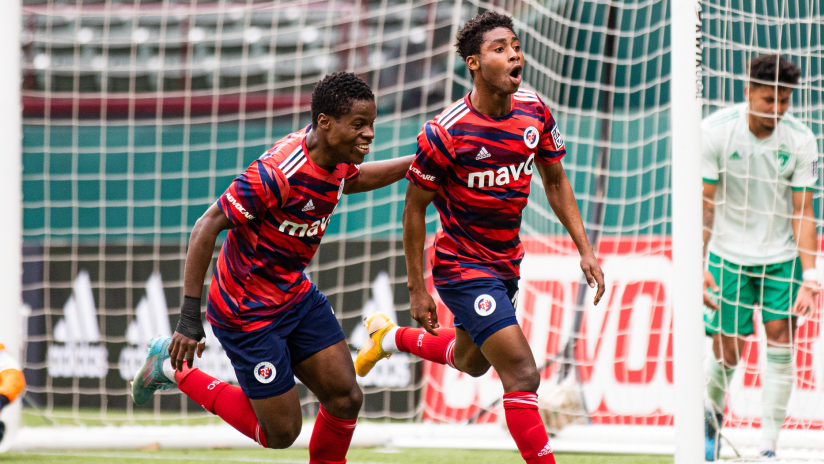FRISCO, Texas – Bernard Kamungo and Hope Avayevu have been North Texas SC’s dynamic duo on the field, combining for 18 goals and 11 assists through 21 games.
Off the field, they’ve become brothers.
Both players are in their second seasons with the club—which serves as the development team for FC Dallas. Avayevu joined North Texas following his eye-catching performances for Becham United in the 2019 edition of the Dallas Cup, the famed international youth tournament. Once he turned 18 and was eligible to play for foreign clubs, Avayevu signed his first pro contract and moved from his native Ghana to Frisco, Texas. The transition wasn’t easy.
“Last year was quite difficult for me because it was my first year in a new environment with new players and coaching style,” the 19-year-old Avayevu said. “You need to adapt to the situation where you find yourself, so it was a little bit tough.”
Kamungo’s journey to North Texas and pro soccer was even less straightforward. He was born and raised in a refugee camp in the East African country Tanzania before relocating to Abilene, Texas at 14 via the International Rescue Committee. There, he played four seasons for Abilene High School before trying his luck in North Texas SC’s annual open tryouts. Kamungo was head and shoulders above the other 100+ trialists and was signed to a pro contract shortly after.
“Man, it was just a dream. From the refugee camp to all the way here to the U.S., and playing professionally, the whole time it’s like living a dream,” said Kamungo, who mainly goes by ‘Bernie’. “I’m telling my parents all the time, this is just unbelievable, I can’t believe I’m here. When I passed the tryout and came here and started paying, I was just enjoying myself every time.”
The first year was full of ups and downs for Kamungo and Avayevu. They were both living away – far away – from their families for the first time and needed to adapt to the rigors of pro soccer on the field and at home. The game was quicker and more physical. Intense daily training sessions meant nutrition and recovery became much more important. The matches themselves came with a different kind of pressure than youth soccer. It was a lot to get used to on their own.
Luckily, the club’s general manager Matt Denny suggested they share an apartment across from the training facility since they were around the same age and had both emigrated from Africa.
“I felt like from the first day we met each other we understand each other,” Avayevu said. “We know where we are from and the vibe just started from the first day we met each other. He's like a brother to me.”
“I talked to him and I saw that his background and mine are kind of similar,” Kamungo echoed. “To actually have somebody with the same background…it actually helps a lot. On and off the pitch.”
On the pitch, the pair has taken their game to a new level. Kamungo’s 13 goals ties him for third-most league wide and Avayevu trails only Romeo Beckham for the most assists with seven—four of which have gone directly to his roommate.
“You just make your run and he's gonna find you. So that's all I do,” Kamungo explained. “Like Hope said, we have a connection. We analyze the play (after) every game. I don't have to wait until he looks at me because I know this is the time he likes to play these balls. I know him already. I know what type of player he is. Every single time he's on a ball I know how to make my run. I just need to time it right and he’s gonna find me for sure.”
In their free time, Kamungo and Avayevu are always refining their collective understanding of the game. They watch the top European leagues and dissect what makes the best teams click. Sprinkle in a few games of FIFA against one another and you have two players who inherently know each other’s tendencies and ideas of how soccer should be played.
“We watch soccer together a lot and then we talk about it and analyze stuff ourselves,” Avayevu said. "So normally when we’re on the field, we don't need talk to each other—we just do it. We don’t talk any more on the field but everything we do just works out.
“We understand each other anytime we’re on the field. We know what we're doing anytime we’re off the field. We know what we need to be doing as a professional players.”





